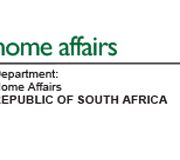Q&A: Foreign Employee
Question from Lawrence Thipe
I’m in the ICT sector and need to hire a Foreign Employee from Mozambique. Do you have an idea on what I should do?
Answer
When hiring a foreign national a number of items need to be taken into consideration. The first item to note is to make your offer of employment subject to the obtaining of the necessary work or residency permits.
In this regard, where the candidate is required to enter the country urgently to start working as soon as possible, it is recommended they first apply for a Visitor Visa under Section 11(2) of the Immigration Act of 2002, as amended, which allows the candidate to work for a period of up to three months, and this visa takes 5 – 10 days maximum to obtain. These temporary work permits are obtained hassle-free and is far more preferable that running the risk of being caught as illegally working, arrest for breach of immigration rules etc.
Once done, the candidate may enter the country and start working and you need to start looking at the process of applying for the longer term work visa. The Critical Skills Work Visa is favourable for candidates in the ICT sector and we recommend considering this category first and foremost. We strongly advise against the “General” Work visa category because of the involvement of the Department of Labour which is still at this stage lengthy and often unsuccessful. The candidate will be required to return to Mozambique to apply for the visa and may take 30 days to complete.
In terms of remuneration, the candidate must be paid by South Africa and as such will be subject to South African taxes and in accordance with the double tax agreement between South Africa and Mozambique.
Whilst the employee’s remuneration is subject to tax, there are a number of special planning items that can be considered for expatriate employees, these include tax free accommodation for the first two years and up to R25 000 per month, time outside South Africa is exempt and a log book of travel should be kept to calculate this, one month relocation allowance is exempt, and where he has not worked for the complete year in South Africa a portion of his taxes may be refunded and can be claimed back from SARS on personal tax assessment.
Other items to consider include –
- Split payroll setup, where a portion of his salary is paid locally and the balance is paid offshore (this is not a tax saving mechanism, but allows employees to receive their money where they need it).
- A correctly setup South African non-resident bank account.
- Ideally the candidate should not belong to the South African retirement fund but should rather take out private insurances, including life and disability cover.
There are specialised providers in the market and we can refer you to them, if needed.



